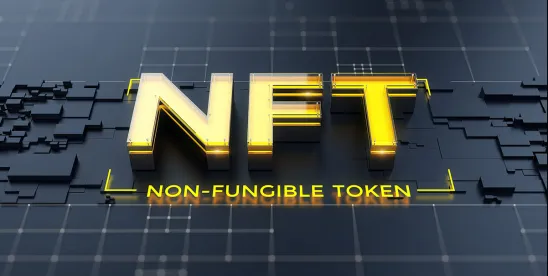Now that state legislatures across the country are working to approve the much anticipated Article 12 to the Uniform Commercial Code (UCC), it is time to prepare for transactions with cryptocurrencies and non-fungible tokens (NFTs) as collateral.1
At the heart of the UCC amendments is the concept of “controllable electronic records” (CER), which will normally include cryptocurrencies and NFTs. A CER is (1) a record (2) stored in an electronic medium (3) that can be subjected to control.2 Control of a CER exists if (1) the electronic record gives a person (a) the power to avail itself of substantially all of the benefits of the electronic record, (b) the exclusive power to prevent others from doing so, and (c) the exclusive power to transfer control to another person and (2) enables the person to readily identify itself as having these powers.3
A CER may be perfected by control or the filing of a financing statement. If perfected by control, the security interest has priority over a security interest in the CER perfected only by filing a financing statement and also gives the lender additional protection with the ability to readily access the collateral.4
While lenders have certain advantages for perfection by control, borrowers may want to consider pushing back against perfection by control or limit the control in a way that doesn’t impact the integrity and ownership of their digital asset.
Cryptocurrencies and Private Keys
For perfection by control of a cryptocurrency, the parties will need to (1) verify that a borrower is a true owner of the particular cryptocurrency and (2) take steps to allow a lender to “control” this cryptocurrency and perfect security interest over that cryptocurrency.
The verification process can be performed by checking the wallet account information on blockchain, but the anonymous nature of blockchain technology will pose certain limits to this verification process. The transfer of cryptocurrencies to a bank account or an escrow account in a bank-like institution will, therefore, help a lender verify a borrower’s ownership because only the true owner with a private key can transfer cryptocurrencies, unless this information has been hacked or stolen. As the borrower transfers its cryptocurrency to a bank or escrow account, the lender and the borrower will need to enter into a control agreement with a bank or a bank-like institution, the form of which will be similar to securities account control agreement and deposit account control agreement.5 This step will help ensure that the lender has “control” over the cryptocurrency and has perfected its security interest over the collateral.
Another potential option is to create a smart contract protocol that will act as an escrow account that gives the lender ability to “control.” Because a smart contract protocol would, in theory, be able to automatically execute this “control” process without a third party, it could help lenders and borrowers be more cost- and time-efficient. Certain blockchain platforms are already offering multisignature-based escrow accounts for cryptocurrencies, but this method of control must prove its security and operationality before the finance industry and legal community can feel comfortable adopting it.6
Lastly, a lender can perfect its security interest by control by obtaining the private key of a borrower’s wallet account. A private key is a key tool in blockchain technology and “gives you the ability to prove ownership or spend the funds associated with your public address.”7 While it’s a key tool that ultimately governs crypto transactions on a blockchain platform, a private key can pose risks to both lenders and borrowers in a secured transaction. From the lender’s perspective, the borrower might provide wrong information, so it would be safer to have a certain “transfer” element (as the above two options would provide) in the control process. From the borrower’s perspective, sharing information about the private key gives a lender or any third party a de facto ownership of its crypto account, so the crypto assets in that account might be used in a way not intended by the borrower. Also, for both, the private key information might be stolen during the transaction, which puts both at risk of losing the crypto assets used as collateral. Because of these potential risks, borrowers and lenders should be cautious about perfecting security interest by sharing private keys.
NFTs and Intellectual Property Rights
An NFT is another form of CER that could be used as collateral. An NFT is a unique token that cannot be replaced by another token on blockchain. It has become popular as a new way of finding potential buyers (for creators) and of taking ownership over certain assets (for investors). Digital arts such as BAYC and CryptoPunks are well known NFTs given their early entrance to the NFT market, but the scope of NFT can be as broad as all existing assets in the current financial world plus emerging digital assets.
When using an NFT as collateral, lenders and borrowers should begin with the following question: What does the owner of an NFT really possess? Imagine someone purchases an NFT associated with a digital art. As the owner of an NFT, you get an ownership certificate of the digital art. Unlike what many buyers mistakenly believe, the buyer doesn’t necessarily acquire the underlying work of art and all the rights associated with the art. Instead, they are likely “buying the metadata associated with the work; not the work itself.”8 While the NFT owner will certainly be able to transfer that NFT to another potential buyer on blockchain, it might not have all the rights that an art owner may have in the non-blockchain world. In particular, the buyer may not acquire any copyright over the digital art that the NFT is associated with. Unless this smart contract through which the NFT is minted transfers the copyright to the digital work with the transfer of an NFT, the buyer is simply acquiring an ownership certificate without any copyright. If that’s the case, the owner of an NFT may be breaching copyright law if, for instance, it uses the art to produce goods with the digital art on it.
A lender, therefore, should conduct diligence on the scope of rights that the owner possesses. As the NFT industry develops, however, smart contracts associated with NFTs will likely become more complicated. The lenders will need to work with lawyers and experts who can decipher computer code in a particular smart contract to determine the scope and value of NFTs as collateral.
A borrower should also understand the scope of rights it acquired in the NFT to avoid making misrepresentations when using the NFT as collateral and to maximize the value of the NFT as collateral. It would be ideal to consult with lawyers and experts before the purchase of the NFT, but if that process didn’t take place during the purchase, it should at least be conducted before granting perfected security interest to a lender.
In terms of the perfection method, borrowers and lenders should be able to perfect by either (1) transferring the NFT to a bank or a bank-like institution with an NFT control agreement executed by all parties involved or (2) transferring the NFT using a smart contract protocol that acts as an escrow account and a control agreement without a third party, assuming blockchain platforms develop and allow such a protocol standard. The two methods are similar to those explained for cryptocurrencies above.
1. 16 jurisdictions (California, Colorado, District of Columbia, Hawaii, Indiana, Maine, Massachusetts, Nebraska, New Hampshire, New Mexico, North Dakota, Oklahoma, South Dakota, Tennessee, Washington and West Virginia) introduced legislative bills to adopt the UCC amendments. Legislative bill tracking for the UCC amendments is available at https://www.uniformlaws.org/committees/community-home?communitykey=1457c422-ddb7-40b0-8c76-39a1991651ac#LegBillTrackingAnchor (last accessed on February 3, 2023).
2. UCC § 12-102(a)(1), Uniform Law Commission, “Uniform Commercial Code Amendments (2022)”, National Conference of Commissioners on Uniform State Laws (November 30, 2022), p. 235.
3. UCC § 12-105(a), Ibid., pp. 245-246.
4. Official Comment to UCC § 9-107A, Ibid., pp. 145-146.
5. SACAs are used to perfect security interest under UCC § 9-106 and DACAs are used to perfect security interest under UCC § 9-104.
6. As of now, smart contract protocols are simple and are not suited to translate complicated natural language terms into computer code that becomes the basis of automatic execution under smart contracts. This method of control will largely depend on future developments of smart contract protocol standards. Counos, a blockchain platform based in Switzerland, offers multisignature-based escrow for cryptocurrencies.
7. “What are Public and Private Keys?” Cryptopedia (June 28, 2022), https://www.gemini.com/cryptopedia/public-private-keys-cryptography (last accessed on February 1, 2023).
8. Andrew Guadamuz, “What Do You Actually Own When You Buy an NFT?” World Economic Forum (Feb. 7, 2022), https://www.weforum.org/agenda/2022/02/non-fungible-tokens-nfts-and-copyright (last accessed on February 1, 2023).




 />i
/>i
